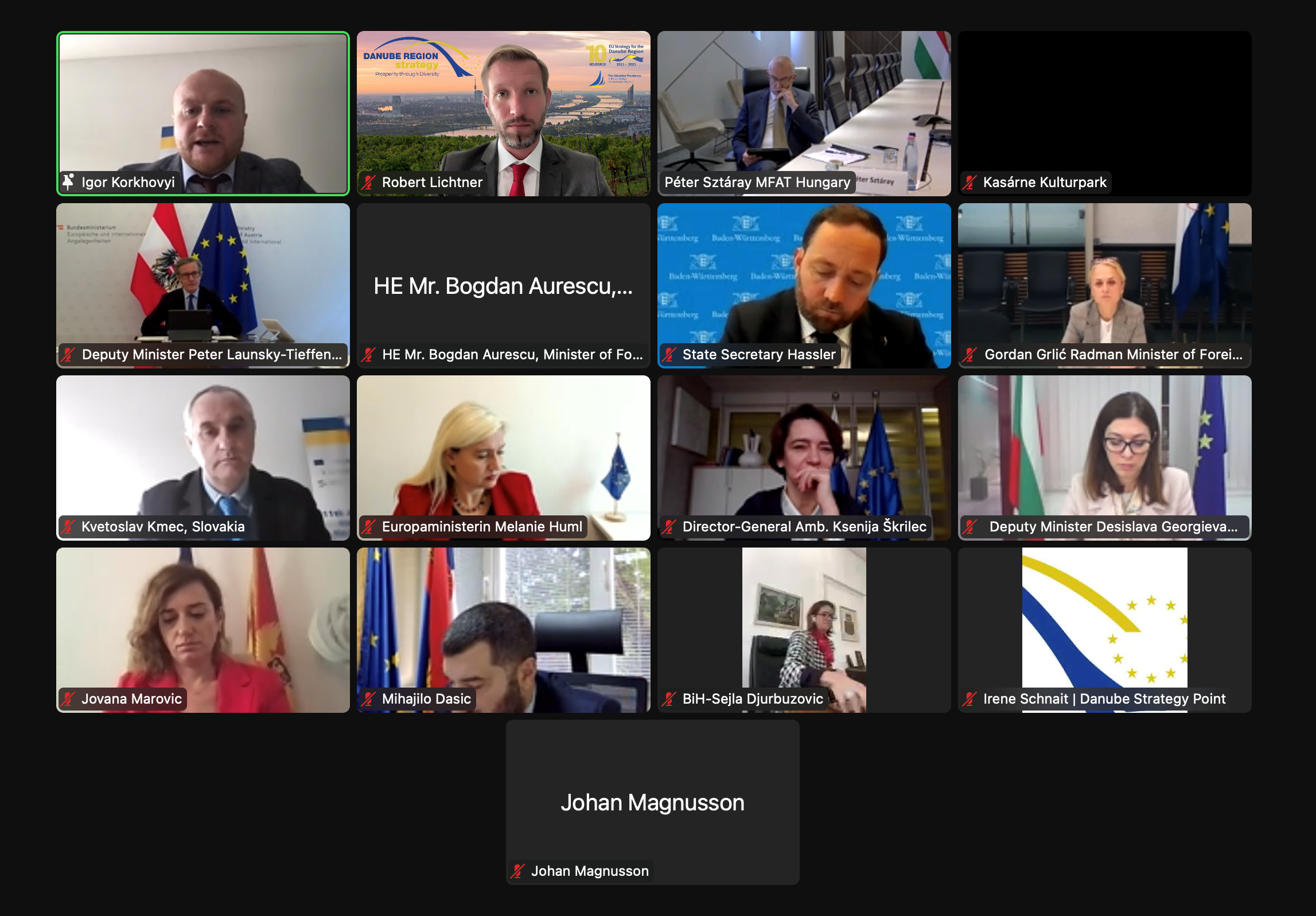The Ministers, responsible for the EU Strategy for the Danube Region met on 19 October 2022 on the occasion of the 11th Annual Forum of the EUSDR, jointly organised by Ukraine, Slovakia, the European Commission and the Danube Transnational Programme with the support of the Danube Strategy Point, and agreed on a joint statement regarding the following:
- sustainable development of the Danube Region
- unprecedented challenges for the Danube Region (energy, navigation, and food security)
- deepening of the regional and cross-MRS cooperation
“The end of 2021 was a milestone for the EUSDR. For the first time since it was adopted, the EUSDR countries welcomed the Presidency of a non-EU country, but has strong European integration intentions and a desire for joint development and prosperity of the Danube Region. This important moment was a confirmation of the equal cooperation of the participating countries, which goes beyond the EU borders.” – excerpt from the Joint Statement
In February 2022, the unprecedented, illegal, unprovoked military invasion of the Russian Federation in Ukraine affected the whole world and the #EUSDR ministers strongly condemned this attack on a sovereign, peaceful state as a violation of international law and the principles of the UN Charter, and as undermining of European and global security and stability.
The Joint Statement also mentioned the search for effective solutions through the use of the Danube existing potential, encouraging all EUSDR actors to fully capitalise on the Strategy`s framework and establish networks to support Ukraine and the neighbouring countries, both with regards to the current situation, but also in anticipation of future reconstruction.
Cooperation within the framework of the EUSDR to overcome existing and new challenges and threats in the Danube Region was also part of the declaration, pointing out the importance of sustainable regional development, and cooperation between Macro-Regional Strategies and the Cohesion Policy of the EU.
The issues of energy security and European community’s efforts on reducing the dependence on Russian fossil fuels through diversification of energy supply sources and routes, together with food security were important topics in the ministers’ Joint Statement.
The COVID-19 pandemic and the Russian aggression demonstrated the deep interconnectedness of the world’s trade routes, which had been severely affected and blocked. In these conditions, the important role that transport plays in economic, social and sustainable development in the Danube Region was recognised. Investment in the development and improvement of macro-regional transport infrastructure and navigation on the Danube is a common interest and priority for all EUSDR countries and regions.
Therefore, all interested parties of the EUSDR are called up to strengthen mutual infrastructural interconnections and develop new logistics routes to overcome existing threats and ensure sustainable and stable economic development of the Danube Region.
The new and innovative approaches for optimised value chain development within the whole Danube Region, sustainable economic development, creation of new jobs and investments in labour markets within the Danube Region were also mentioned in the Statement.
The full text of the Joint Statement of the Minister responsible for the implementation of the EUSDR, 19 October 2022




